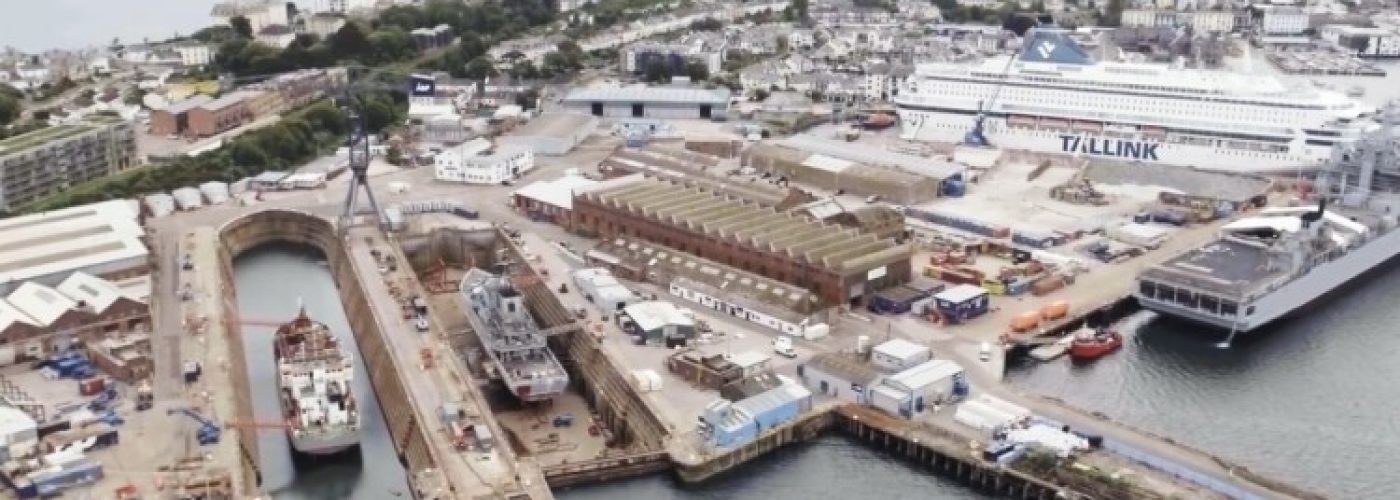A trio of government regulators have agreed to work together to help drive forward the £150 million redevelopment of Falmouth Docks, streamlining the approval process for one of Cornwall’s most significant infrastructure projects.
Natural England and the Environment Agency have confirmed they will allow the Marine Management Organisation (MMO) to take the lead as the primary environmental regulator overseeing the scheme. The coordinated approach is designed to simplify decision-making, reduce bureaucratic delays and keep costs down for developer APCL A&P Falmouth — while maintaining rigorous environmental protections.
The major redevelopment includes essential repairs to critical dock infrastructure and upgrades to accommodate larger vessels, including cruise ships. The enhanced docks are expected to boost Cornwall’s defence, marine, offshore and cruise capabilities, supporting local jobs and long-term economic growth.
Under the new system, any unresolved regulatory issues will be escalated to the Department for Environment, Food & Rural Affairs’ (Defra) new infrastructure board to ensure progress continues at pace.
Secretary of state for environment, food and rural affairs, Emma Reynolds, welcomed the move, saying: “Communities across the country have been let down by a bureaucratic planning system that chokes enterprise, does little for nature and leaves hardworking people waiting for the jobs and investment they deserve. Having one clear regulator in charge speeds up approvals and helps projects like Falmouth Docks to progress at pace, without compromising our ironclad commitment to the environment. This is a win-win situation for jobs, prosperity and nature.”
APCL A&P Falmouth managing director Mike Spicer said the new process would accelerate delivery and help expand the company’s service offering: “The acceleration of planning processes for development applications like ours will enable us to significantly enhance the services we can offer to our defence, offshore and cruise customers and help fulfil Cornwall’s ambitious floating offshore wind agenda.”
MMO chief executive Michelle Willis added: “This is an exciting project in Falmouth and one that will showcase how future licensing consent regulations can be applied to enable much-needed transformation and change.”
Once complete, the redevelopment — expected to be fully operational by 2030 — will extend the existing Queens Wharf westwards to accommodate larger vessels, including Excellence Class cruise ships up to 345 metres long. New facilities will also support the assembly of floating offshore wind structures, while the reconnection of a disused rail line with new bulk import and export facilities will help drive Cornwall’s emerging lithium and battery manufacturing sectors.
Falmouth Docks joins the Lower Thames Crossing as one of the latest major UK infrastructure projects to benefit from the government’s new lead environmental regulator scheme, part of its wider effort to streamline planning and accelerate sustainable development nationwide.
Building, Design & Construction Magazine | The Choice of Industry Professionals





